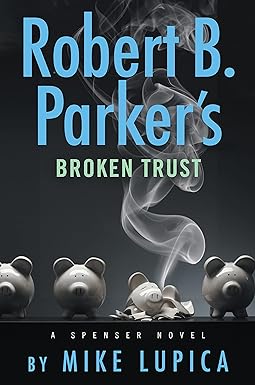In case you haven't heard, today is the 250th anniversary of the Boston Tea Party. And in the interest of open and free discussion, Jeff Jacoby (who is a Boston Globe columnist) goes all contrarian: The Boston Tea Party was a crime.
How should we regard the events of that night 250 years ago? Was it really an act of heroism to destroy 46 tons of tea? Was that massive and costly act of vandalism to private property justified by the protesters' anger at Britain's policy on tea?
I revere the founders of the American republic and rejoice in the independence they ultimately wrested from Great Britain. I have only disdain for the "woke" view of history that regards the United States, in the words of a 2017 essay in The New Yorker, as "a mistake from the start." I am profoundly grateful that I had the good fortune to be born an American. But that doesn't change the fact that destroying other people's property to advance a political cause is wrong. It is wrong whether the cause is right-wing or left-wing. It is wrong whether the cause is racial equity, climate change, opposing a war, overturning an election, or denouncing Wall Street. It is wrong in 2023 and it was wrong in 1773.
Hostility to the Tea Act of 1773 was entirely defensible. But the Sons of Liberty didn't have to destroy a vast fortune in tea to make their point. After all, anti-British patriots in other cities had managed to block the English tea without causing damage.
I'm not convinced by Jacoby's argument, but then again I don't have to be.
At Law & Liberty, Hans Eicholz takes a look at The Constitutional History of the Boston Tea Party.
The Tea Party sparked the long series of imperial measures and colonial countermeasure that would eventually lead to the shooting war of the American Revolution. These measures included the much hated Boston Port Act, which collectively punished one of the most important trading centers in colonial America. The significance of the Tea Party as the ignition spark that exploded the powder keg of the American Revolution cannot be overemphasized. Yet there remains considerable doubt as to its moral, political, and economic causes.
A great deal of this orientation arises from a number of fairly recent critical accounts that are in sympathy with the constitutional and political position of the king and Parliament. We hear again ideas once pronounced by American Loyalists and their British counterparts that colonial Patriots were actually confused about the nature of the British constitution, that they were in large measure led about by local smugglers of Dutch tea in service of their private interests, and that the Tea Act of 1773 was actually designed to lower the price of tea to the benefit of American consumers. Each of these points can be defended as having a basis in historical fact. But there was a whole lot more going on than just this.
![[Amazon Link]](/ps/asin_imgs/B09H8HWNY3.jpg)
Tea was the first beverage Ted was served after arriving at AFC Richmond. When Rebecca offered it to him, she asked him, "How do you take your tea?", as English custom demanded. He responded unpredictably with, "Well, usually I tell them to take it right back to the counter, because someone has made a horrible mistake."
(You have to say this to yourself with Ted's "Kansas Country" accent.)
And for an alternative quote, see the amazon product at your right.
Finally, the NR editors are enthusiastic about The Undying Spirit of the Boston Tea Party.
The fundamental question that led to the Boston Tea Party was taxation without representation. Seeking to recoup the costs of the Seven Years War (known here as the French and Indian War), which had begun on the western Pennsylvania frontier, the British Parliament between 1765 and 1770 made successive efforts to tax the American colonists. The amounts involved were hardly oppressive, and the colonists were among the most lightly taxed people in the Western world at the time — but they liked it that way, and grasped immediately the menace to their freedoms in the principle that they could be taxed by a faraway body in which they had no voice. They were also alarmed that new taxes would finance a larger and more intrusive colonial government.
The result was protests, boycotts, and worse — including riots that terrorized anyone who cooperated in collecting the taxes. This struck the British as unreasonable, but being unreasonable in devotion to liberty and self-government turns out to be an excellent basis upon which to found a nation.
We link, you decide.
Recently on the book blog:
![[Amazon Link]](/ps/asin_imgs/B07C3B6BK5.jpg)

![[The Blogger and His Dog]](/ps/images/me_with_barney.jpg)



